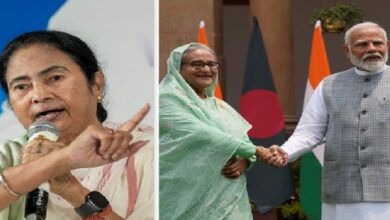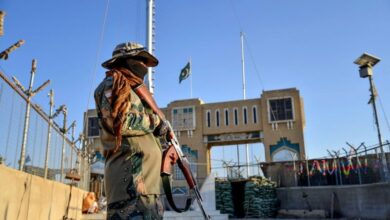Nepal Army plans to buy APCs. Chinese supplier is on US blacklist
It wants to procure 26 armoured personnel carriers from Chinese firm Norinco for use in UN peacekeeping missions.

By Anil Giri
Kathmandu: Days ahead of Prime Minister Pushpa Kamal Dahal’s scheduled India visit, reports emerged suggesting that the Nepal Army plans to procure 26 armoured personnel carriers (APCs) worth Rs6 billion from China’s North Industries Group Corporation Limited (Norinco). The APCs are to be used by the Nepali peacekeepers deployed in various peacekeeping missions.
Reportedly, the deal also includes the procurement of 10,000 CQ—the 5.56 mm version rifles from the same Chinese company.
The national army was all set to procure the 26 APCs from China via the Nepal Army Welfare Fund, a decision on which was taken when Sher Bahadur Deuba was the prime minister and also overseeing the defence ministry.
The ‘listing date’ was June 3, 2021 and ‘divestment date’ for the procurement was June 3, 2022, according to a document the Post saw. Although the Nepal Army or the government of Nepal have to put in the money initially, the UN peacekeeping office would reimburse the money to the army after the APCs are delivered and come into operation.
The problem is that the Chinese firm, Norinco, from which the Nepal Army was planning to procure the Chinese APCs, was sanctioned by the US Department of the Treasury’s Office of Foreign Assets Control (OFAC) in November 2022.
Now, the Nepal Army and the local Himalayan Bank, from where the army was all set to deposit the money to open the letters of credit (LCs) via Nepal Rastra Bank, are in a fix after coming to know that the Chinese state-owned company is on the US sanction list and there is no clarity over the possible ramifications if the APCs are indeed bought from the company.

Speaking at a function on Friday, the Chief of Army Staff General Prabhu Ram Sharma said the army does not require any weapon as such at the moment, but it may need some vehicle parts. He didn’t elaborate.
“We are not procuring any weapon for the Nepali peacekeepers who are deployed in the UN missions, but as per the requirement, some study might be undertaken to procure some vehicle parts from a nearby market at an affordable price,” said Sharma.
“The Nepal Army has enough weapons in stock,” Sharma said in Kavre after marking the International Day of United Nations Peacekeepers. “There is no need to procure weapons.”
After the then Defence Minister Deuba had given his go-ahead, the army started negotiations with suppliers in India and China and decided to procure 26 APCs from China and four from India. But the price between the Indian and Chinese APCs was vastly different, said an official privy to the procurement process. “An APC costs around Rs40 million in India, while a similar one that also met the US standards fetched for Rs77 million in China.”
“There was some serious homework earlier regarding the procurement of the 26 APCs from China,” said two officials in the army and the defence ministry who are privy to the development. The army submitted all documents at the Himalayan Bank on April 17, including personal invoice and performer contracts. Three Nepal Army Generals Pradip Jung KC, Santosh Ballav Paydual and Tikaram Gurung have signed the document, according to those familiar with the procurement process, requesting the bank to open a letter of credit.
After political pressure on the army not to procure the APCs from China on the eve of the prime minister’s India visit and as the Chinese company was found to be blacklisted by the Americans, the bank has halted the LC process.
“No LC for importing APCs has been opened yet,” Sunil Gorkhali, a senior official at the Himalayan Bank, said.

With the army determined to buy the APCs from China, Prime Minister Dahal summoned Deputy Prime Minister and Defence Minister Purna Bahadur Khadka and General Sharma and advised them not to do so at a time he is going on a state visit to India.
According to a leader close to Dahal, the prime minister also said that given the country’s economic problems, this is not a good time to buy arms and ammunition, and it will not look good on the government. Moreover, if the procurement issue lands in Parliament, it will create an uproar and eventually, the government will be compelled to cancel the deal.
Former chief of Nepal Army Gaurav Sumsher Rana said competitive bidding process as per the prescribed government procurement rules and regulations must be adhered to.
“The Nepal Army can procure weapons, arms and ammunition from the army’s welfare fund. It’s a standard procedure to replace and upgrade various war fighting material/equipment, to meet UN stipulations to enhance the operational readiness in the field… But the procurement cannot be done in a haphazard way. The army cannot spend billions of rupees at one go. It does not look good either,” said Rana, who is currently in the US.
However, the army was adamant about its decision to procure the APCs from China and on May 18, it signed an agreement with Norinco to buy an ammunition plant worth Rs700 million. As per a May 23 decision, and in a separate deal, the army is also planning to buy CQ-a 5.56 mm version rifles and sending Rs100 million for it soon, the final agreement for which will be reached in June, said two knowledgeable sources from the Nepal Army and the Defense ministry.
On the other hand, on Monday, the army deposited some initial amount at the Himalayan Bank to open the letter of credit, but after it emerged that the Chinese firm was sanctioned and blacklisted, the process has been halted but not terminated, according to defence ministry officials.

Even though the process of procuring the APCs has been stopped for now, it can be resumed anytime, even during the upcoming visit of General Sharma to China in June-end or July, said the officials who are following the issue.
Prakash Poudel, spokesman for the Ministry of Defence, told the Post that the army had planned to procure the APCs but he does not know about the plan’s current status.
“The Nepal Army was planning to get some APCs. But such issues are not discussed or decided in the Defence Ministry. Nor do we have any information on the cancellation of the LC process. We have no written information,” said Poudel.
As the security agencies procure arms and ammunition through a separate law, the public procurement law does not bind them.
“The army first issues a public notice asking interested firms that can deliver arms and ammunition,” said retired Maj Gen Purna Silwal.
“When the listed companies send the list of items they can deliver, the army approaches them as per its needs and requirements.”
But Silwal is also unsure if a foreign blacklisted company can deliver the APCs to the Nepal Army that deploys its troops in UN peacekeeping missions. “I am hearing about this kind of problem for the first time, so I have no idea,” said Silwal. “But the reimbursement from the UN could be affected.”
There is confusion about what the army will do now.
But a senior official at the Nepal Rastra Bank said that the army knows how to circumvent such sanctions. “Earlier too, the Nepal Army has made similar attempts to procure and get supplies in a safe way,” said the Nepal Rastra Bank official.
“If someone goes to the international court saying that Nepal Army is procuring arms and military hardware from a blacklisted company, it will attract international jurisdiction and cross-border jurisdiction. But see what is happening in Iraq. The US has put so many sanctions, but it is still receiving weapons from elsewhere. The Nepal Army also knows very well that at the time of supply and delivery, it can arrange to have the weapons delivered from non-sanctioned companies,” said the senior official of the central bank.
But a former defence secretary said that the “US could create problems for Nepali peacekeepers, if we procure the APCs and other military supplies from a blacklisted Chinese company.”
Norinco, he said, is also involved in providing arms and ammunition to Myanmar’s government that is under global sanctions.
“The Americans have a huge stake in UN peacekeeping operations. So if we procure the APCs from a blacklisted company, they may create hurdles, they may not allow the APCs to operate. We have to look at this aspect too,” the former defence secretary said.
The US is the biggest contributor to the UN peacekeeping missions, accounting for 27.89 percent of the total contribution, followed by China (15.21 percent). Seven of the Top 10 contributors to the missions are from the Western bloc that closely work with the Americans.
After some national and international media outlets started reporting on how the Nepal Army was going to procure arms and ammunition from China, the army chief came to its defence on Friday, saying the army has no plans to get weapons from China.
“We have not procured any weapons from China after 1989-1990. If the Nepal Army needs to buy weapons, it takes prior approval of the government and will only move forward as per the [national] Acts, policies and rules. We have not opened a letter of credit to procure weapons,” said General Sharma.
Stating that vehicles suitable to operate in the country hosting the peace mission were being purchased, Sharma suggested that no one should try to mislead the public on that front.
Deputy Prime Minister and Minister for Defence Purna Bahadur Khadka also dismissed reports about the procurement of weapons from China.
Nepal Army that had bought 30,000 small weapons from South Korea when Purna Chandra Thapa was the chief of the army staff. The army purchased 30,000 K2C assault rifles from South Korea, manufactured by the Daewoo Precision Industries at a cost of $900 each. It is yet to receive the last instalment of 10,000 weapons from South Korea.
Nepal Army spokesman Brigadier General Krishna Prasad Bhandari also claimed that the army has no plans to procure more weapons and that the force has not communicated with anyone on the front.
“There has been no formal decision on the procurement of the APCs. Some peacekeeping missions might need Chinese spare parts and as per the requirements, there could be some procurement on this front. But it is incorrect to say we have opened an LC and are going to procure weapons,” Bhandari added.
Anil Giri is a reporter covering diplomacy, international relations and national politics for The Kathmandu Post. Giri has been working as a journalist for a decade-and-a-half, contributing to numerous national and international media outlets.




